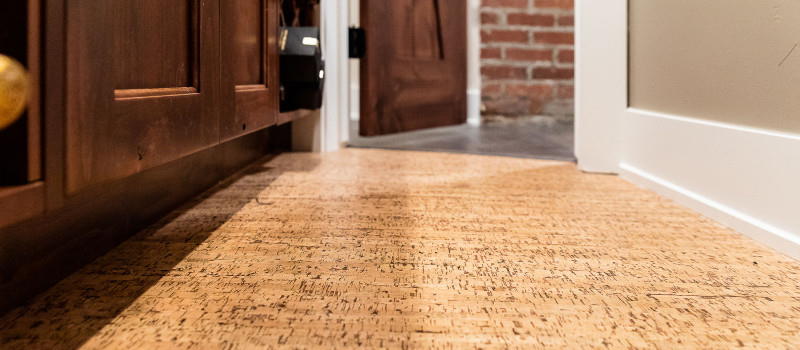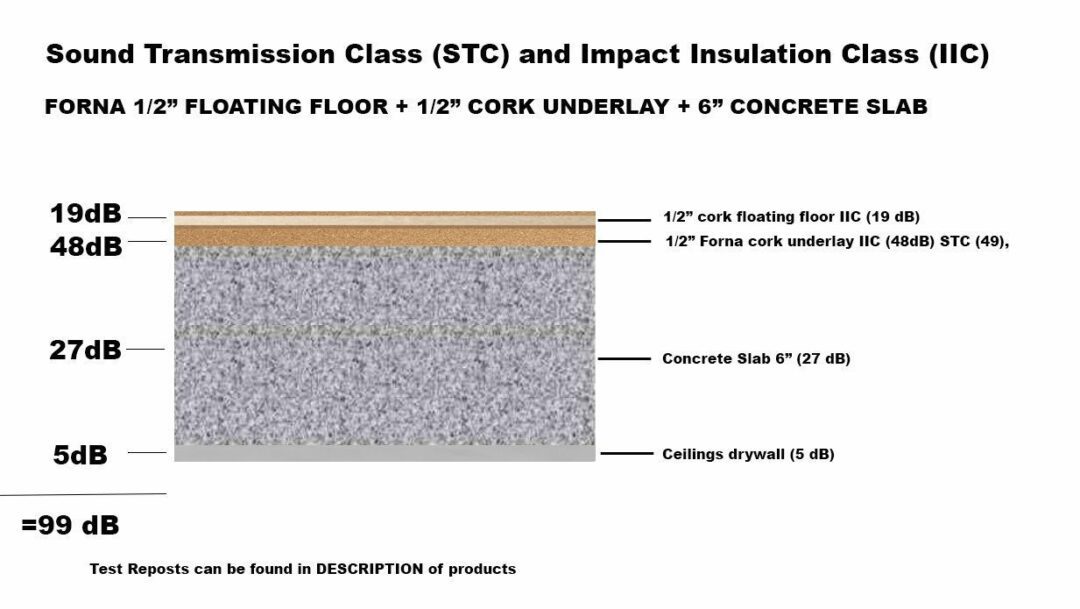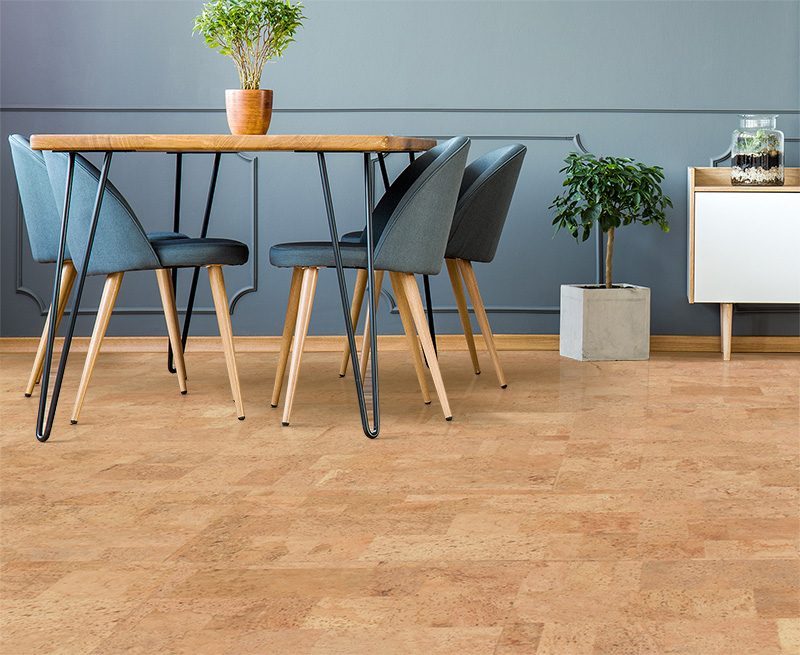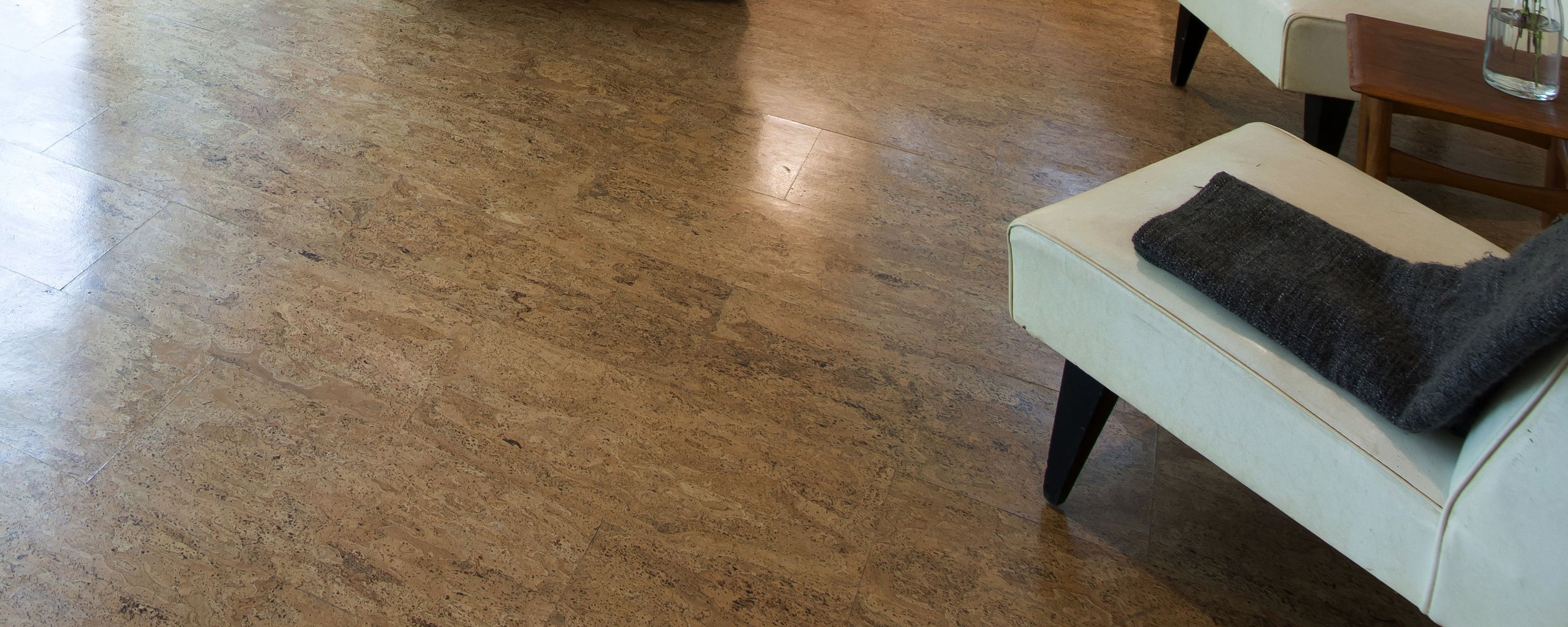Cork flooring has become an increasingly popular choice among homeowners looking for a unique and sustainable flooring material. In particular, cork flooring on concrete can be a great way to improve the look and feel of your home while enjoying various benefits. In this article, we’ll explore the advantages of installing cork flooring on concrete and provide some tips for ensuring the installation process goes smoothly.
Benefits of Cork Flooring on Concrete
- Durability: Cork flooring is a highly durable material that withstand heavy wear and tear. When installed on concrete, cork flooring can hold up well against foot traffic, furniture, and other objects that may be placed on it.
- Sustainability: Cork is a renewable and sustainable material harvested from the bark of cork oak trees. By using cork flooring, you can enjoy the benefits of a beautiful and eco-friendly flooring material.
- Insulation: Cork is naturally insulating, which means it can help keep your floors warm in the winter and cool in the summer. When installed on concrete, cork can help reduce energy costs and make your home more comfortable.
- Resistance to water and mold: Cork flooring is naturally resistant to water, mold, and mildew, making it an ideal choice for high-humidity areas like bathrooms and kitchens.
Installing Cork Flooring on Concrete
If you’re considering installing cork flooring on your concrete floors, there are a few things to remember. First, ensure your concrete is level and free of cracks or other damage. If there are any problems with the concrete, they should be fixed before you start laying down the cork.
Second, you’ll need to use an adhesive such as mastic or epoxy to adhere the cork securely to the concrete. This will ensure the cork stays in place and doesn’t shift or move over time.
Finally, you may use a special underlayment material between the cork and the concrete. This can help reduce noise and make the floor more comfortable underfoot. Many different types of underlayment materials are available, so be sure to choose one that fits your needs and budget.
Once your cork flooring is installed on your concrete, you can enjoy its benefits for years to come. The cork will help reduce noise and insulate your home, adding a unique look. And since it’s resistant to water and mold, it’s a great choice for areas like bathrooms and kitchens.
Cork flooring on concrete can be an excellent choice for improving the look and feel of your home. With its durability, sustainability, and insulation properties, cork flooring can provide various benefits that other flooring materials can’t match. Cork flooring is worth considering whether you’re looking for a cost-effective way to improve your concrete floors or want a unique and eco-friendly flooring material. By following the tips and advice in this article, you can ensure that your installation process goes smoothly and that you have a beautiful and long-lasting floor.
Cork Flooring on Concrete

Basement Cork Flooring (Pros/Cons u0026 Best Brands) Home Flooring Pros
Acoustic Insulation Installation – Cork Flooring – ICork Floor
How to Install a Cork Floor – This Old House
How to Install Glue Down Cork Flooring Over Concrete Subfloor in Bathroom and Kitchen
Using Cork Floor Tiles in Your Kitchen
Best Basement Flooring – The Warmest Basement Floor Covering Is Cork
ThermaCork Flooring u2014 Thermacork
DIY Cork Flooring – Pros, Cons u0026 Green Installation Guide for LEED
All About Cork Flooring and Why We Love It for the Basement
Cork Flooring Pros and Cons Americau0027s Floor Source
Related Posts:


/cdn.vox-cdn.com/uploads/chorus_asset/file/19495909/h1006handbook08.jpg)

:max_bytes(150000):strip_icc()/cork-flooring-in-unfurnished-new-home-647206431-57e7c0c95f9b586c3504ca07.jpg)




